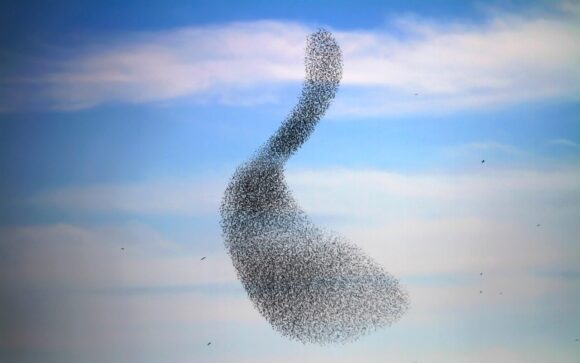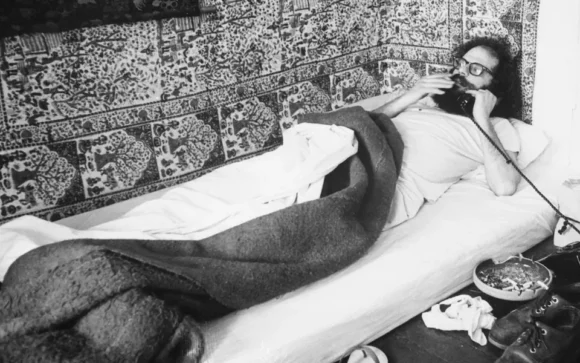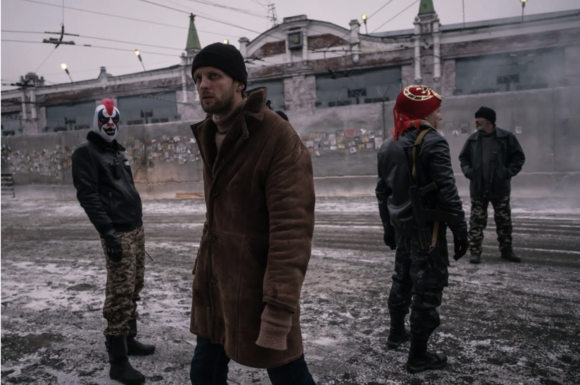“Researchers,” writes Giorgio Parisi, recipient of the 2021 Nobel Prize in Physics, “often pass by great discoveries without being able to grasp them.” A friend’s grandfather identified and then ignored a mould that killed bacteria, and so missed out on the discovery of penicillin. This story was told to Parisi in an attempt to comfort him for the morning in 1970 he’d spent with another hot-shot physicist, Gerard ‘t Hooft, dancing around what in hindsight was a perfectly obvious application of some particle accelerator findings. Having teetered on the edges of quantum chromodynamics, they walked on by; decades would pass before either man got another stab at the Nobel. “Ideas are often like boomerangs,” Parisi explains, and you can hear the sigh in his voice; “they start out moving in one direction but end up going in another.”
In a Flight of Starlings is the latest addition to an evergreen genre: the scientific confessional. Read this, and you will get at least a frisson of what a top-flight career in physics might feel like.
There’s much here that is charming and comfortable: an eminent man sharing tales of a bygone era. Parisi began his first year of undergraduate physics in November 1966 at Sapienza University in Rome, when computer analysis involved lugging about (and sometimes dropping) metre-long drawers of punched cards.
The book’s title refers to Parisi’s efforts to compute the murmurations of starlings. Recently he’s been trying to work out how many solid spheres of different sizes will fit into a box. There’s a goofiness to these pet projects that belies their significance. The techniques developed to follow thousands of starlings through three dimensions of space and one of time bear a close resemblance to those used to solve statistical physics problems. And fitting marbles in a box? That’s a classic problem in information theory.
The implications of Parisi’s work emerge slowly. The reader, who might, in all honesty, be touched now and again by boredom, sits up straighter once the threads begin to braid.
Physics for the longest time could not handle complexity. Galileo’s model of the physical world did not include friction, not because friction was any sort of mystery, but because the mathematics of his day couldn’t handle it.
Armed with better mathematics and computational tools physics can now study phenomena that Galileo could never have imagined would be part of physics. For instance, friction. For instance, the melting of ice, and the boiling of water: phenomena that, from the point of view of physics, are very strange indeed. Coming up with models that explain the phase transitions of more complex and disordered materials, such as glass and pitch, is something Parisi has been working on, on and off, since the middle of the 1990s.
Efforts to model more and more of the world are nothing new, but once rare successes now tumble in upon the field at a dizzying rate; almost as though physics has undergone its own phase transition. This, Parisi says, is because once two systems in different fields of physics can be described by the same mathematical structure, “a rapid advancement of knowledge takes place in which the two fields cross-fertilize.”
This has clearly happened in Parisi’s own specialism. The mathematics of disorder apply whether you’re describing why some particles try to spin in opposite directions, or why certain people sell shares that others are buying, or what happens when some dinner guests want to sit as far away from other guests as possible.
Phase transitions eloquently connect the visible and quantum worlds. Not that such connections are particularly hard to make. Once you know the physics, quantum phenomena are easy to spot. Ever wondered at a rainbow?
“Much becomes obvious in hindsight,” Parisi writes. “Yet it is striking how in both physics and mathematics there is a lack of proportion between the effort needed to understand something for the first time and the simplicity and naturalness of the solution once all the required stages have been completed.”
The striking “murmurations” of airborne starlings are created when each bird in the flock pays attention to the movements of its nearest neighbour. Obvious, no?
But as Parisi in his charming way makes clear, whenever something in this world seems obvious to us, it is likely because we are perched, knowingly or not, on the shoulders of giants.



